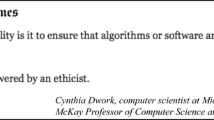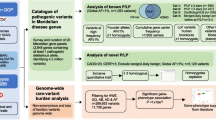Abstract
As a result of the publicly funded Human Genome Project (HGP), and an increasing number of private enterprises, a new form of eugenic theory and practice has emerged, differing from previous manifestations. Genetic testing has become a consumer service that may now be purchased at greatly reduced cost. While the old eugenics was pseudoscientific, the new eugenics is firmly based on DNA research. While the old eugenics focused on societal measures against the individual, the new eugenics emphasizes the family as a control agent. Eugenics is now voluntary, with the promise of abortion for those afraid of producing genetically damaged children. The ethical concepts of beneficence, avoidance of maleficence, autonomy, and equity are discussed in terms of aspects of the HGP. One major issue is the need for an ethical system available to health consumers that will empower them and assist in their biogenic decisions.
“The concentration on the genes implicated in cancer is only a special case of a general genomania (emphasis added) that surfaces in ... the weekly announcements in The New York Times of the location of yet another gene for another disease. The revealing rhetoric of this publicity is always the same; only the blanks need to be filled in: ‘It was announced today by scientists at [Harvard, Vanderbilt, Stanford] Medical School that a gene responsible for [some, many, a common form of] [schizophrenia, Alzheimer’s, arteriosclerosis, prostate cancer] has been located and its DNA sequence determined. This exciting research, say scientists, is the first step in what may eventually turn out to be a possible cure for this disease.’”
Lewontin 1
Similar content being viewed by others
References
Lewontin, R. (1997, January 9) “Billions and billions of demons”, The New York Review of Books, pp. 28–31.
Beardsley, T. (1996, March) Vital data. Scientific American, pp. 100–105.
Cook-Deegan, R.M. (1994) The gene wars: Science, politics, and the human genome, W. W. Norton & Co., New York.
Cooper, N.G. (ed.) (1994) The Human Genome Project: Deciphering the blueprint of heredity, University Science Books, Mill Valley, CA.
Cranor, C.F. (ed.) (1994) Are genes us?: The social consequences of the new genetics, Rutgers University Press, New Brunswick, N.J.
Lee, T.F. (1991) The Human Genome Project: Cracking the genetic code of life, Plenum Press, New York.
Levi, T. (1992) A very human adventure: The story and implications of the Human Genome Project, Synchron Associates, England.
Loder, B. (1995) The global human genome programme, Organization for Economic Cooperation and Development, Paris.
Wilkie, T. (1994) Perilous knowledge: The Human Genome Project and its implications, The University of California Press, Berkeley.
Robot speeds up mapping of DNA: Scientists predict blueprint by 2001 (1995, December 23), The Globe and Mail, pp. A1, A11.
Marshall, E. & Pennisi, E. (1996) The Human Genome Project: NIH launches the final push to sequence the genome, Science 272: 188–189.
Wiesenthal, D.L. & Wiener, N.I. (1997) Privacy and the Human Genome Project, Ethics and Behavior 6: 189–201.
Public Broadcast System (1998) The basics of genetic testing: A question of genes—Inherited Risks. [on-line] http://www.pbs.org/gene/findout3_/.html.
Kevles, D. (1986) In the name of eugenics: Genetics and the use of human heredity, University of California Press, Berkeley.
Ludmerer, K. M. (1972) Genetics and American society: A historical appraisal, Johns Hopkins University Press, Baltimore.
Tucker, W.H. (1994) The science and politics of racial research, University of Illinois Press, Urbana.
Ross, C. (1996) Birth of a notion, The Next City 1: 28–32-, 55–56.
Proctor, R. (1988) Racial hygiene: Medicine under the Nazi, Harvard University Press, Cambridge, MA.
Kitcher, P. (1996). Lives to come: The genetic revolution and human possibilities, Simon & Schuster, New York.
Paul, D. (1994) Eugenic anxieties, social realities, and political choices, in: Cranor, C.F. (ed.), Are genes us?: The social consequences of the new genetics, Rutgers University Press, New Brunswick, NJ.
Larson, E.J. (1995) Sex, race and science: Eugenics in the Deep South, Johns Hopkins University Press, Baltimore.
Reilly, P.R. (1991) The surgical solution: A history of involuntary sterilization in the United States, Johns Hopkins University Press, Baltimore.
Searle, G.R. (1976) Eugenics and politics in Britain, 1900–1914, Noordhoff International Publishers, Leyden.
Smaglik, P. (1998, June 8) Privatizing the human genome?, The Scientist 12: 1–6, Electronic version, (http://www.the-scientist.library.upenn.edu/yr1998/june/smaglik_p1_980608.html).
Beauchamp, T. L. & Childress, J. F. (1983) Principles of biomedical ethics, Oxford University Press, New York.
Jones, D. (1997, June 15) Betsy Lewthaite’s genetic odyssey, The Globe and Mail, p. D5.
Immen, W. (1996, May 7) Experts back genetic testing for cancer, The Globe and Mail, p. A9.
Marshall, E. (1996a) Genome researchers take the pledge, Science 272: 477.
Marshall, E. (1996b) Rifkin’s latest target: Genetic testing, Science 272: 1094.
Kolata, G. (1993, December 7) Nightmare or the dream of a new era in genetics, The New York Times, pp. A1, B10.
Behavior geneticists shun colleague (1995) Science 270: 1125.
Kakva, G.S. (1994) Upside risks: Social consequences of beneficial biotechnology, in: Cranor, C.F. (ed.), Are genes us?: The social consequences of the new genetics, Rutgers University Press, New Brunswick, NJ.
Wright, R. (1990, July 9) Achilles helix, New Republic, pp. 21–31.
Dyson, F. (1997, April 10) Can science be ethical, The New York Review of Books, pp. 46–48.
Dunn, K. (1996, December 21) A troubling cure ‘for hereditary disease, The Globe and Mail, p. D6.
McGee, G. (1997) Where human life happens. The Pennsylvania Gazette, June, Electronic edition, (http://www.upenn.edu/gazette/0697/babies.html).
Author information
Authors and Affiliations
Corresponding author
Rights and permissions
About this article
Cite this article
Wiener, N.I., Wiesenthal, D.L. Ethical questions in the age of the new eugenics. SCI ENG ETHICS 5, 383–394 (1999). https://doi.org/10.1007/s11948-999-0029-2
Received:
Revised:
Accepted:
Issue Date:
DOI: https://doi.org/10.1007/s11948-999-0029-2




